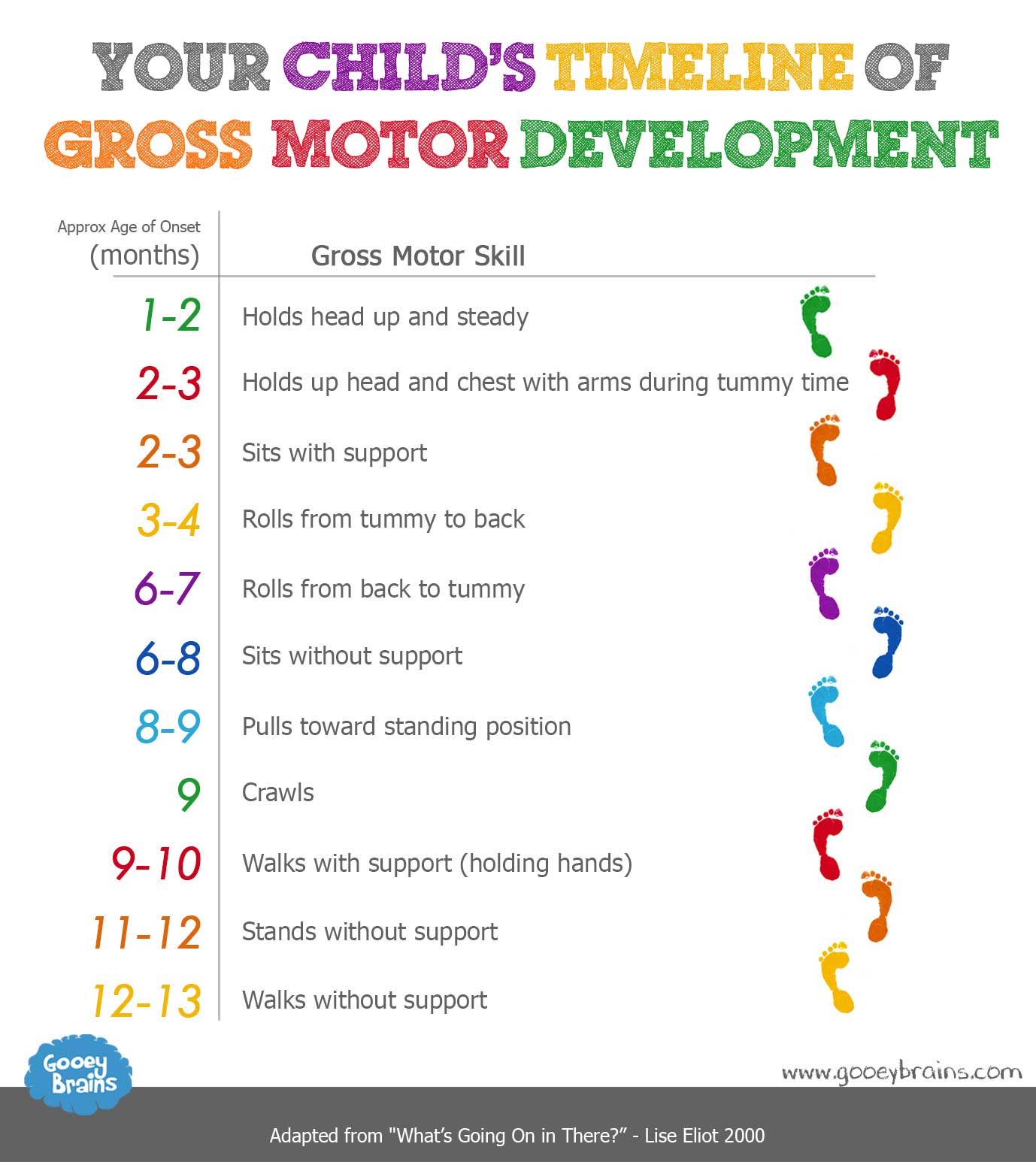 Source: bing.com
Source: bing.comWatching your baby grow and develop is a beautiful experience. As a parent or caregiver, it’s important to keep track of their progress in reaching important milestones. One of these milestones is the development of gross motor skills. Gross motor skills are the ability to control the large muscles in the body, which allows your child to crawl, walk, run, and jump. But when do babies develop gross motor skills?
Table of Contents
Birth to 3 Months
During the first three months of life, your baby will develop some basic gross motor skills. They will start to gain control of their head and neck, and will also begin to move their arms and legs more purposefully. You may notice them kicking their legs and waving their arms around.
4 to 6 Months
Between 4 and 6 months, your baby will start to make more deliberate movements with their arms and legs. They may start to roll over, reach for objects, and sit up with support. They may also start to bear weight on their legs when you hold them upright.
7 to 12 Months
Once your baby reaches 7 months, they will start to develop more advanced gross motor skills. They may begin to crawl, pull themselves up to stand, and cruise along furniture. By 12 months, they may take their first steps and start walking independently.
1 to 2 Years
Between 1 and 2 years, your toddler will continue to develop their gross motor skills. They will become more adept at walking, running, and jumping. They may also start to climb stairs, kick a ball, and throw objects. They may even start to ride a tricycle.
2 to 3 Years
Between 2 and 3 years, your child will continue to refine their gross motor skills. They will become more coordinated and may start to jump with both feet, catch a ball, and balance on one foot. They may also start to climb on playground equipment and ride a bicycle with training wheels.
It’s important to remember that every child develops at their own pace. Some children may reach these milestones faster or slower than others. If you have any concerns about your child’s development, talk to their pediatrician.
Frequently Asked Questions
Q: What are gross motor skills?
A: Gross motor skills are the ability to control the large muscles in the body, which allows your child to crawl, walk, run, and jump.
Q: When do babies develop gross motor skills?
A: Babies develop gross motor skills at different rates, but typically start to gain control of their head and neck at 3 months, roll over at 4 to 6 months, crawl at 7 months, and walk at 12 months.
Q: What can I do to help my baby develop their gross motor skills?
A: You can help your baby develop their gross motor skills by giving them plenty of tummy time, encouraging them to reach for toys, practicing sitting up, and holding them upright to bear weight on their legs.
Q: What are some signs of delayed gross motor development?
A: Signs of delayed gross motor development may include not hitting milestones within the expected time frame, not being able to bear weight on their legs, and not being able to sit up with support.
Q: What should I do if I’m concerned about my child’s gross motor development?
A: If you’re concerned about your child’s gross motor development, talk to their pediatrician. They can evaluate your child and recommend any necessary interventions or therapies.
